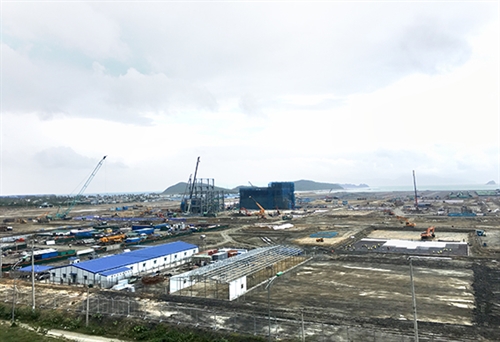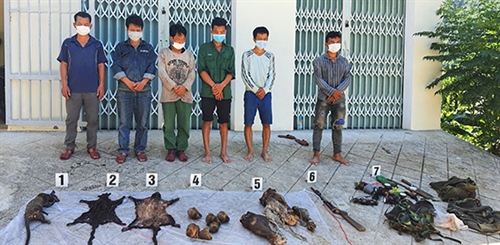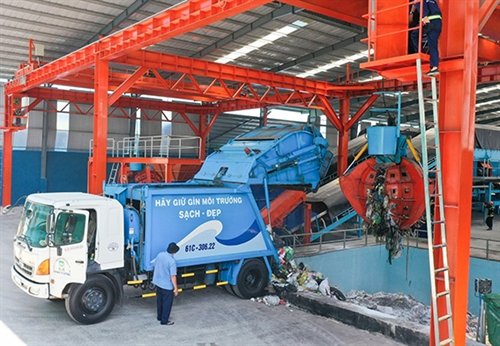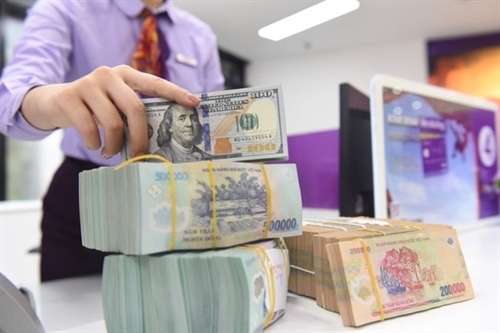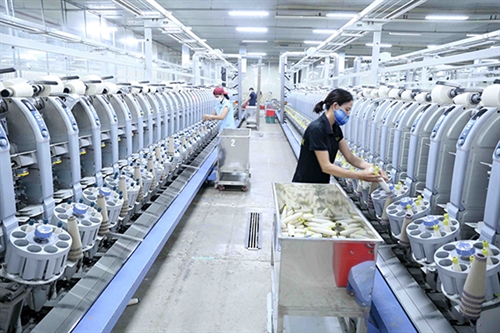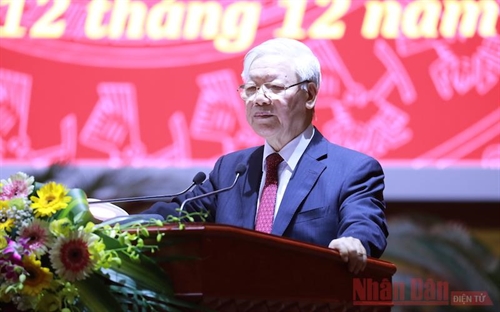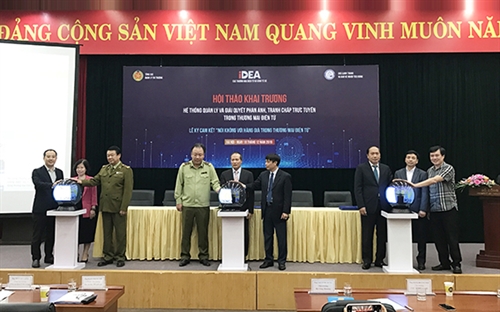The latest Law on Investment of Vietnam was adopted on June 16, 2020. It represents a remarkable effort of the Vietnamese Government in improving investment policies and is likely to have materially beneficial impacts on cross-border merger and acquisition (M&A) transactions in Vietnam, especially transactions involving the use of land. In this article, the writers will discuss some new points of the 2020 Law on Investment with regard to M&A activities over land-using investment projects.
Tran Thu Yen[1] and Ngo Phuong Anh[2]
Introduction
The current Law on Investment, adopted by the National Assembly on June 16, 2020 (the 2020 LOI or the Law), includes seven chapters with 77 articles regulating foreign investment activities in Vietnam and offshore investment activities. The Law, which came into force on January 1, 2021, has addressed many issues revealed in the process of implementation to create a more favorable investment environment for investors when conducting business investment activities in Vietnam, especially those concerning land-using projects.
As of December 2020, the total newly registered, adjusted and contributed capital of foreign investors reached USD 28.53 billion, equaling 75 percent of the figure of the same period in 2019.[3] The numbers have shown that Vietnam remains a comparatively attractive investment destination for foreign investors despite the Covid-19 pandemic and the sluggish global economy. Let’s take a look at the 2020 LOI’s new provisions regarding M&A activities over land-using investment projects to see whether such changes can help Vietnam recover from the pandemic and thrive on developing a vibrant and sophisticated M&A market.
Under the 2020 LOI and other specialized laws, the process of implementing a land-using investment project can be summarized as follows:
(i) Studying relevant land use master plans[4];
(ii) Making project formulation proposal and preparing the prefeasibility report;
(iii) Seeking investment policy approval for the project[5];
(iv) Selecting investor/granting an investment registration certificate;
(v) Carrying out procedures for land allocation, land lease and land clearance;
(vi) Fulfilling requirements on fire prevention and fighting, environmental protection, design and construction permits;
(vii) Carrying out construction and acceptance testing of the project; and,
(vii) Putting the project into operation and use.
According to the 2020 LOI, the power to grant investment policy approval for land-using investment projects rests on the National Assembly, the Prime Minister or provincial-level People’s Committees, depending on the scale of the projects (refer to Articles 30, 31 and 32 of the 2020 LOI for more details).
Notable points of the 2020 LOI in terms of land-using projects
Investment incentives and investment support for housing development projects
The 2020 LOI introduces new forms of investment incentives applicable to investment projects in a number of industries and sectors.
With respect to forms of investment incentives, in order to ensure conformity with the tax laws, the list of investment incentives was supplemented with “accelerated depreciation and increase in the number of deductible expenses when calculating taxable income” and “other incentives in accordance with the law on corporate income tax” (Article 15.1 of the 2020 LOI). These new incentives can bring more benefits to investors, especially those having great investment capital or large scale business operation.
Regarding the objects entitled to investment incentives, the 2020 LOI extends the list of investment projects eligible for investment incentives, focusing on hi-tech business lines, prioritizing environmental protection and increasing the value of innovation and creativity. Following the new law, social housing projects are among projects entitled to investment incentives (Article 15.2.d). Notwithstanding, Article 15.5 of the Law excludes commercial housing projects from the list of beneficiaries of investment incentives based on geographical areas, capital size, and scale of rural labor use. The exclusion could be detrimental to low-cost commercial housing projects when in practice, some low-cost commercial housing projects and social housing projects are similar in terms of housing price, yet the former are not qualified for investment incentives.
Certain new regulations, for instance, Article 20 of the 2020 LOI, give the Government discretion as to special investment incentives and investment support, aiming at promoting projects having material impacts on the socio-economic development and creating an attractive policy for FDI inflows in the context of rapid investment shifting.
Conditions applicable to M&A transactions involving land-using projects
Similar to its 2014 version, the 2020 LOI requires foreign investment in the form of capital contribution or purchase of shares or contributed capital amounts in an economic organization to satisfy several conditions. However, while the prerequisite under the 2014 LOI only contains conditions on foreign holding rates and forms of investment, under Article 24.2 of the 2020 LOI, foreign investors must satisfy three conditions regarding market approach, national defense and security, and land use rights.
With regard to land-related conditions, M&A transactions by foreign investors must comply with regulations on acquiring land use rights and using land in island, border and coastal areas. Accordingly, a written approval from related ministries is required for the allocation or lease of land or conversion of land use purpose in accordance with Article 58.2 of the Land Law. As a matter of practice, the M&A process concerning land-using investment projects involves a procedure in which the seller must return the project land to the State, and then the new investor will apply for allocation or lease of land from the State. The application for land use rights by foreign investors would require the involvement of not only investment authorities but also agencies under the Ministry of Natural Resources and Environment. As such, this new condition under the 2020 LOI sustains the consistency of the legislation system and enhances the cooperation and communication among state agencies.
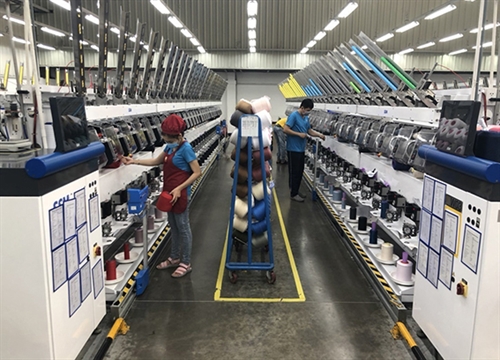 |
| A production line of Gunzetal Vietnam Ltd., a foreign-invested enterprise specialized in garment accessories in Binh Duong province__Photo: Duong Chi Tuong/VNA |
Approval of M&A transactions concerning land-using projects in island, border and coastal areas
The M&A procedure under the 2020 LOI is amended in a simpler approach and this change has been welcomed by many. Specifically, the registration requirement now has been abolished under Article 26.3 of the Law for M&A transactions that do not result in an increase in foreign holding rate in the target company. This new approach is expected to save time for both foreign investors and licensing authorities and promote foreign capital inflows.
Nonetheless, that is not the case for an M&A transaction of a target company having project land located in an island or a border or coastal area, or in any other areas that may have an impact on national defense or public security. The 2020 LOI has made supplements to the list of projects subject to M&A approval. As a result, any foreign investment in a target company holding the right to use land in island or border or coastal areas is now required to seek M&A approval, regardless of the foreign holding rate in the target company after the acquisition (Article 26.2 of the 2020 LOI). This new requirement does provide conformity with the approach to M&A conditions discussed above.
Transfer of investment projects
As provided in Article 46 of the 2020 LOI, investors are allowed to wholly or partly transfer their investment projects. This is not a new regulation compared to the previous investment regulations, law on real estate business or housing law. However, it is a clear and consistent statement of the investors’ right to transfer the whole or part of their projects. Different conditions are applied to exercise this right, depending on each project and the specialized governing laws.
Transfer procedures are uniformly applied throughout the Law on Investment and guiding instruments, except the case specified in Article 46.2.b of this law. Considering the current trend of large-scale real estate projects, allowing the transfer of part of the projects and unifying the transfer procedure will be a guarantee for investors to deploy the projects with more peace of mind and with less risk.
Regarding real estate investment projects, according to Article 75.2.b of the 2020 LOI, in case of a real estate project for which the investor was approved or for which an investment registration certificate was issued, the authority and procedures for transfer of the whole or part of the project must comply with the provisions of the investment law. Thus, this is also a new point that not only consolidates the legislation but also eliminates a legal procedure that is overlapping between laws for the transfer of the whole or part of a real estate business project.
Investment policy approval and investor selection
Firstly, regulations regarding investment policy approval have been revised with more investment projects covered and detailed criteria, authority and procedure.
Investment policy approval (IPA) is a familiar concept that dates back to Decree 118/2015/ND-CP guiding the 2014 LOI, but not until the 2020 LOI is this term used in replacement of the term “investment policy decision” incorporated in the 2014 LOI. The grant of IPA is subject to the decision of the National Assembly, the Prime Minister or provincial-level People’s Committees and complies with the criteria and conditions set forth in Articles 30, 31 and 32 of the 2020 LOI. Generally speaking, compared to previous regulations, the 2020 LOI adds certain investment projects in the fields of construction of urban areas, houses for sale, rent or lease-purchase, or investment projects located in island or border or coastal areas to the list of projects that must obtain IPA prior to operation. Once again, the 2020 LOI was amended with the aim of avoiding the overlap of authority and vagueness in the course of law implementation.
In respect of adjustment of investment projects, although not officially established in the law, prior to the 2020 LOI, investors may make certain change to their investment projects as they wish, so long as the change was legally prescribed and thereafter registered at competent authorities for adjustment of the investment projects. Until the 2020 LOI, the right of investors to “amend the objectives and transfer part or the whole of an investment project, merge projects or divide or separate one project into several projects, use the land use right or a land-attached asset which is part of the investment project to contribute capital to establish an enterprise or to conduct business cooperation” was explicitly recognized and set forth in Article 41.1 of this law. Accordingly, in case the adjustment of an investment project causes a change to the contents on the investment registration certificate (IRC), procedures for modifying the IRC must be carried out in order to record such change.
Notably, an investor must apply for modification of the project’s IPA if the change falls into the cases provided by the law, which are supplemented with certain circumstances, for example, in case the project land area is increased by more than 10 percent, or more than 30 ha; there is an extension of investment schedule by 12 months or more; there is an increase in the investment capital by 20 percent; or there is a change in the approved technology. Since the 2014 LOI, change to the investor of the investment project has been required to register for amendment of IPA. Accordingly, it remains an obligation of the investors that if M&A transactions take place over target companies having investment projects, leading to change of project investors, IPA of these investment projects must be registered for amendment at a competent authority to record such change.
Secondly, selection of investors under the 2020 LOI is no longer an exclusive procedure for public investment and bidding as before. Rather, it now covers projects using private sources of funds, embodied by conditions for and methods of selection under different procedures prescribed in the land law, bidding law and investment law. Before the 2020 LOI, methods of investor selection scattered in multiple legislations, making them difficult for both investors and administrative agencies to follow and implement. Being aware of this shortcoming, the National Assembly, when drafting the new law, tackled the issue by specifying these methods and putting them in one clause for easy application. In particular, investors may be selected via one of the following methods: (i) auction of land use rights if required by the land law; (ii) bidding for selection of an investor in accordance with the bidding law; or (iii) approval of an investor by a competent investment authority.
For the methods (i) and (ii), selection of investors should be carried out after IPA is obtained, except investment projects exempted from IPA. This is to ensure the harmony in implementation of administrative procedures for land-using investment projects.
For the method (iii), the competent investment authority is responsible for issuing IPA without the need to conduct an auction of land use rights or a bidding process if the investor falls into one of the following categories:
(i) The investor has the land use right, except the case of [land] resumption by the State for purposes of national defense and security or the State recovers the land for socio-economic development in national or community interest in accordance with the land law;
(ii) The investor receives an assignment of, capital contribution portion or lease of the agricultural land use right to implement an investment project for non-agricultural production or business and [the land] is not subject to land recovery by the State in accordance with the land law; or,
(iii) The investor implements the investment project in an industrial park or hi-tech park.
This condition loosens the legal requirements for an investment project subject to IPA should the investor already be granted land use rights or acquire agricultural land for non-agricultural production or business projects. In the event a foreign investor wishes to purchase a target company before the latter receives IPA for its investment project, and the purchase, as a result, entitles the foreign investor to the land use right of the project land, it is likely that there would be no obstacles concerning the investor selection process for the foreign investor to obtain IPA.
New regulations on IPA in the 2020 LOI will tighten the management of investment projects that affect social and economic security, local economy, investment projects with large scale and capital fund, and investment projects in areas with conditions on business investment or conditions on market access. Meanwhile, the application of regulations on investor selection for investment projects will expand investment and business opportunities in Vietnam for both domestic investors and foreign investors that are capable and qualified.
Types of land used for commercial housing projects
According to Article 23 of the Housing Law, the only form of land use for the implementation of commercial housing projects is the lawful use of residential land. This regulation has caused difficulties to many businesses with non-residential land resources to develop commercial housing projects. This regulation also imposes restrictions on the market supply and the implementation of planning due to the fact that the holders of rights to use non-residential land cannot conduct investment and business in housing projects. However, the 2020 LOI has addressed this situation by introducing a provision to amend this regulation. According to Article 75.1.c of the 2020 LOI, the land used for investment and construction of commercial housing includes lawful residential land and other types of land permitted by competent state agencies for conversion into residential land. This regulation, along with the provisions in Article 29.4 of the 2020 LOI, will create favorable conditions for investors when applying for approval of a commercial housing project or approval of investor in terms of investment in commercial housing projects.-
